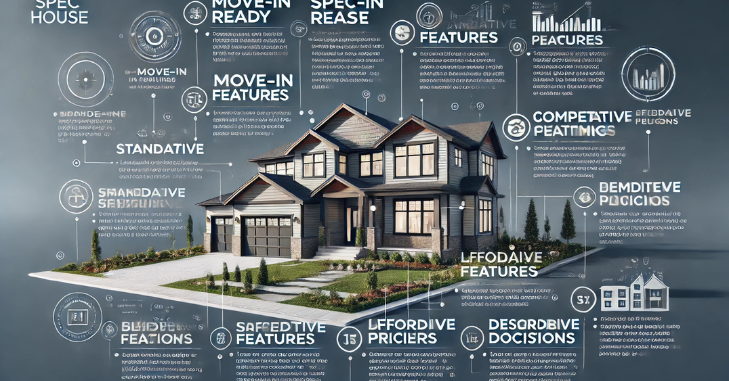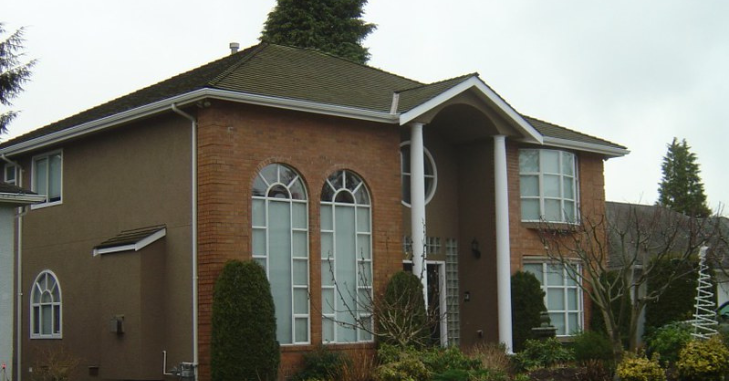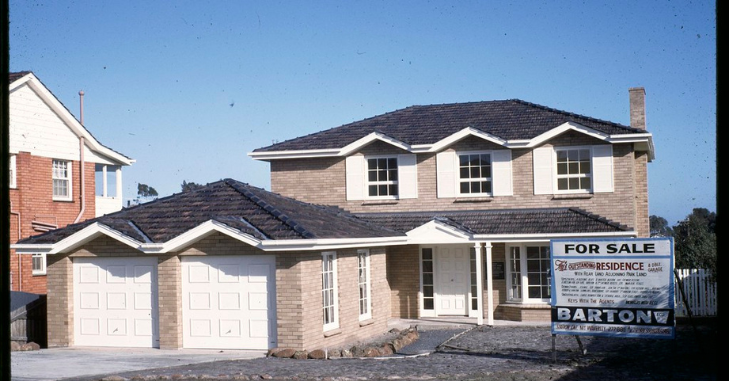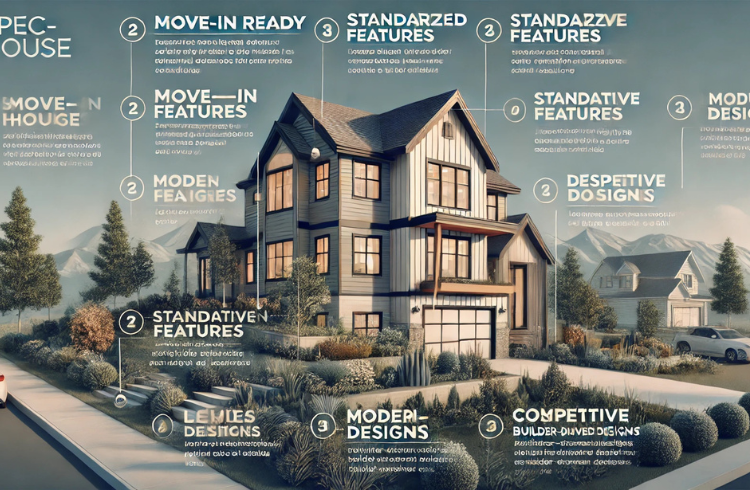Introduction
What Is a Spec House? In the competitive residential real estate market, various home types serve distinct buyer preferences. Among these, spec houses—short for speculative homes—are newly constructed without a committed buyer, designed strategically to match current market demand. These homes provide convenience and modern features for buyers seeking move-in ready solutions in 2024.
This comprehensive guide covers what constitutes a spec house, its advantages, disadvantages, and essential factors for prospective buyers and investors. Whether you are a first-time homebuyer or real estate investor, gaining insight into spec houses will equip you to make informed decisions amid today’s evolving housing market.
| Aspect | Details |
| What Is a Spec House? | A newly built home by developers without a pre-committed buyer, targeted to current market preferences. |
| Key Features | Move-in ready, modern finishes, contemporary designs, often in high-demand neighborhoods. |
| Benefits | Immediate availability, modern amenities, competitive pricing, and attractive locations. |
| Pros | Fast occupancy, lower costs versus custom homes, updated features, no construction delays. |
| Cons | Limited customization, predetermined designs, potential quality variability, market competition. |
| Ideal For | First-time buyers, relocating families, busy professionals, investors seeking turnkey properties. |
This overview helps buyers quickly grasp the essentials of spec houses to evaluate their suitability effectively.
What Is a Spec House?
Definition
A spec house, short for “speculative house,” is built by a developer or builder without a specific buyer lined up. Constructed using market research-backed designs to target anticipated buyer preferences, spec houses are completed with the intent to sell upon finishing. Unlike custom homes customized per individual buyer requirements, spec houses incorporate widely appealing features and finishes to attract a broad audience.
Characteristics of Spec Houses
- Standardized Designs: Popular open floor plans, modern kitchens, and energy-efficient enhancements are common.
- Data-Driven Construction: Builders leverage current market trends to design homes that meet buyer demand.
- Fast Build Time: Construction is accelerated to minimize inventory holding costs and quickly satisfy buyer needs.
- Prime Locations: Spec houses are often situated in well-connected neighborhoods near schools, parks, amenities, and employment centers.

Financing and Investment Considerations for Spec Houses
When considering a spec house, understanding financing options and potential investment returns is essential. Many lenders offer favorable mortgage rates for newly constructed homes, making spec houses financially accessible to first-time buyers.
Additionally, because these homes are built in high-demand areas with modern features, they often appreciate faster than older properties, offering potential long-term value. Investors can also benefit by purchasing multiple spec homes in emerging neighborhoods, renting them out, or selling at a premium once the market strengthens.
Benefits of Spec Houses
1. Move-In Ready
Spec houses are typically completed and fully finished, enabling buyers to occupy their new homes immediately without any construction wait times.
2. Time-Saving
Purchasing a spec house removes the lengthy construction delays often associated with custom builds, ideal for buyers who need housing quickly.
3. Modern Features and Designs
Spec homes include up-to-date amenities such as energy-efficient appliances, smart home technology, and environmentally friendly materials to cater to contemporary lifestyles.
4. Potential for Cost Savings
Builders benefit from economies of scale through bulk purchasing and standardized processes, often passing these savings onto buyers compared to fully custom homes.
5. Simplified Buying Process
Buyers can directly tour finished spec homes, reducing uncertainties and complications related to design selections and construction delays common in custom builds.

Pros and Cons of Spec Houses
Knowing the strengths and limitations of spec houses helps buyers weigh their options effectively and make well-informed home purchase decisions.
Pros
1. Immediate Availability
Spec homes are ready to move in without delay, perfectly suited for buyers requiring prompt housing solutions.
2. No Customization Hassles
With all design decisions pre-made, buyers avoid complex choices regarding finishes and layouts, simplifying the purchase process.
3. Competitive Pricing
Builders often price spec homes competitively thanks to cost efficiencies achieved in bulk construction and materials.
4. Warranty Protection
New spec houses typically come with builder warranties, providing peace of mind and security for buyers.
5. Opportunity for Negotiation
If spec homes linger unsold, buyers may have leverage to negotiate favorable prices or incentives with builders.
Cons
1. Limited Customization Options
Design choices and finishes are generally fixed, limiting buyers’ ability to personalize their home to their unique tastes.
2. Potential for Overbuilding
An excess number of spec houses in a neighborhood can oversaturate the market, which may impact property values negatively.
3. Quality Concerns
Some builders might compromise on quality to reduce costs; it is critical to conduct thorough inspections to verify construction standards.
4. Impersonal Feel
Standardized designs can lack the unique, personal touches many buyers desire in a home.
5. Market Fluctuations
The resale value of spec houses can be affected by local real estate market volatility; conducting market research and consulting experts before purchasing is advised home investment.

The Process of Buying a Spec House
Successfully purchasing a spec house in 2024 involves detailed research: identify desirable neighborhoods, assess current market conditions, and select reputable builders. Establish a clear budget and obtain mortgage pre-approval early to strengthen your buying position.
Tour available spec homes to evaluate construction quality, floor plans, and included features firsthand. Investigate the builder’s reputation and review any offered warranties. When a home meets your criteria, collaborate with a real estate agent to craft a competitive offer that aligns with market values.
Before closing, conduct a professional home inspection—even for new builds—to uncover potential issues. Finalize financing, complete required documentation, and close the transaction. Afterward, you can move into your new home promptly, benefiting from the convenience of a spec house purchase.
Conclusion
Spec houses remain a popular and practical homebuying option in 2024, combining speed, affordability, and modern amenities to meet diverse buyer needs. While customization may be limited and quality varies by builder, many find the trade-offs worthwhile for the convenience offered.
An informed understanding of spec houses empowers buyers to make choices aligned with their lifestyle and financial goals. As the housing market continues to evolve, spec homes will remain a vital part of new construction offerings, providing turnkey solutions in today’s fast-paced real estate landscape.
If you are interested in learning more about “Charitable Land Donation: A Powerful Tool for Change,” please visit our “Real Estate” category for additional resources and expert insights.
FAQs
Generally, yes. Spec houses rely on standardized designs and bulk material purchases, allowing builders to reduce costs. This often results in lower prices compared to custom-built homes that require individualized designs and materials.
Customization options for spec houses are usually limited since the home is built before a buyer is secured. However, if the home is still under construction, some builders may allow minor modifications or upgrades.
Yes. Spec houses are fully constructed and finished to be ready for immediate occupancy upon purchase, offering convenience for buyers who need to move quickly.
Spec houses are built without a buyer and intended for sale, while model homes are show homes designed to showcase builder options and finishes but typically are not initially for sale. Occasionally, model homes become spec homes if unsold.
Focus on construction quality, durability of finishes, builder warranties, energy efficiency features, and ensure no defects or incomplete work. Hiring a professional home inspector is recommended for a thorough evaluation.
Spec houses can be good investments due to their modern features and locations, especially in growing markets. However, like all real estate, success depends on market conditions, location, and buyer demand, so careful analysis is essential.
Most newly built spec houses come with a builder warranty that covers certain structural elements and systems for a defined period, providing protection against defects and repairs after purchase.
For more details on newly constructed homes without a pre-committed buyer, check out Turnkey Tile Services What Working with a Local Company Includes.
For those interested in modern finishes and contemporary designs, check out these men’s moissanite hoop earrings.



